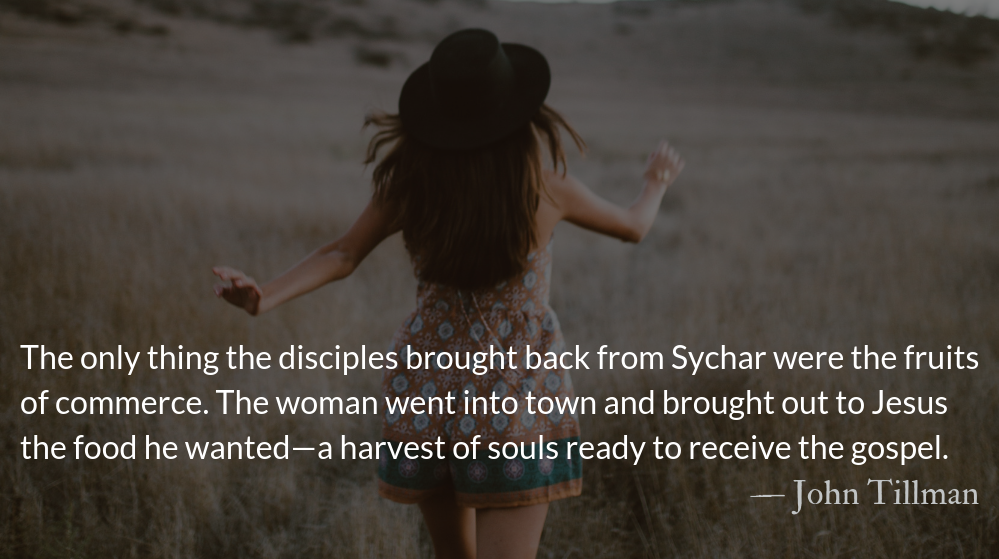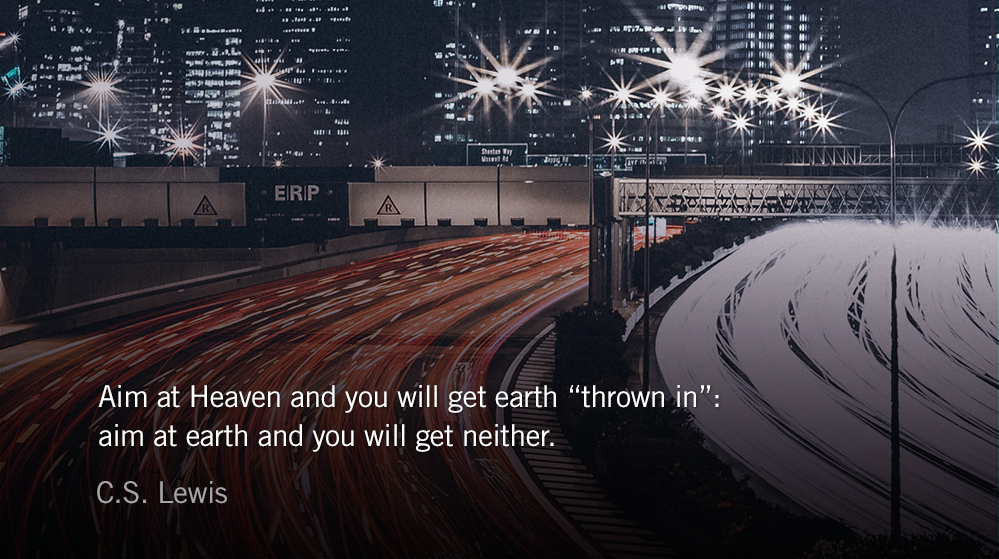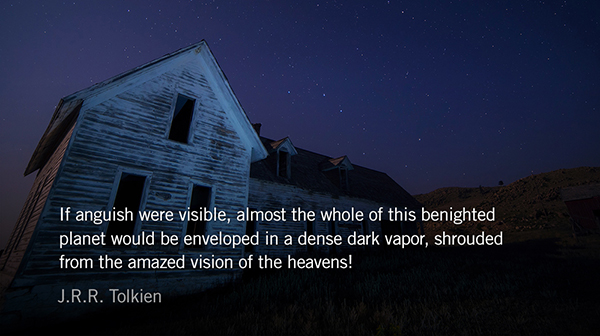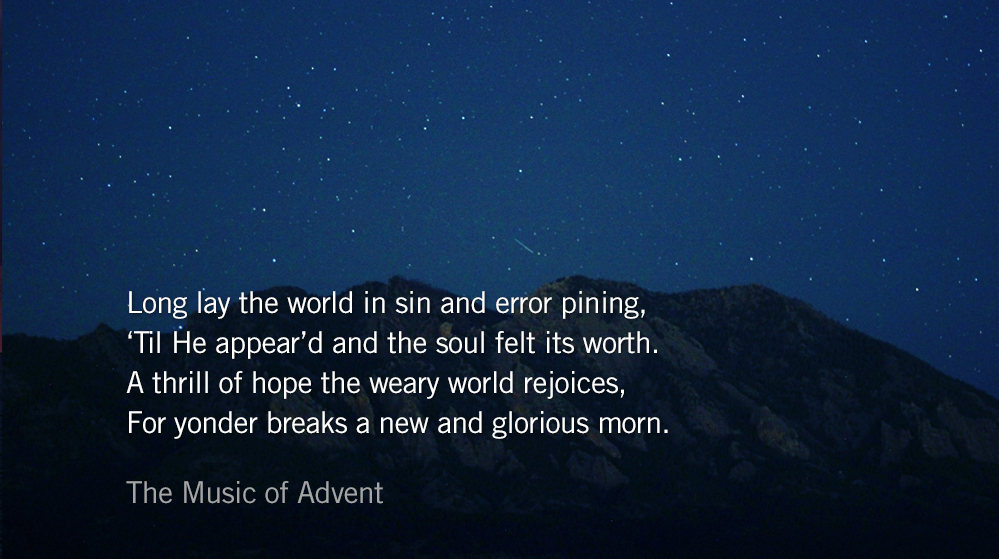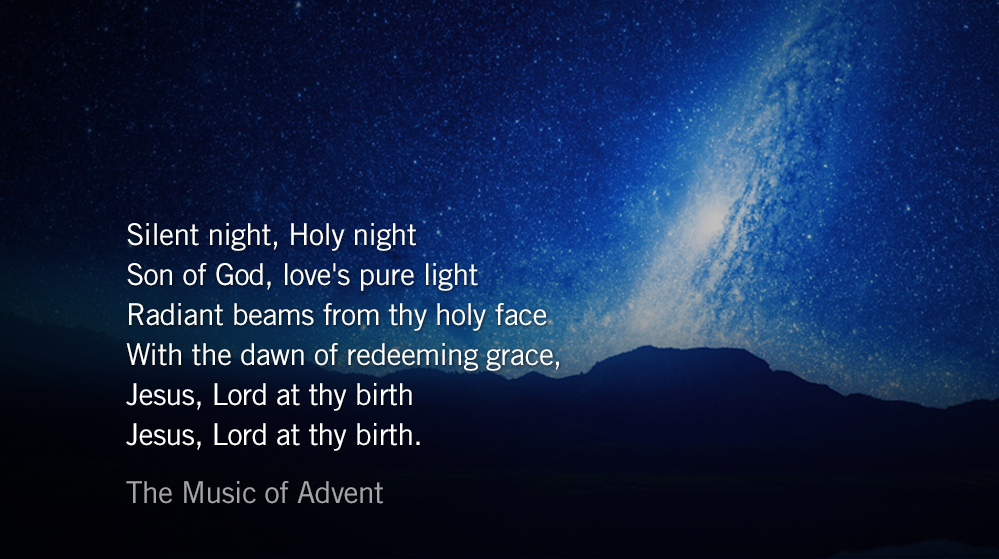John 4.10
If you knew the gift of God and who it is that asks you for a drink, you would have asked him and he would have given you living water.
“We didn’t know who you was.” — Sweet Little Jesus Boy, Robert MacGimsey, 1934
Reflection: Do We Know Him? :: Love of Advent
By John Tillman
The Samaritan woman was an outcast among outcasts.
With a defiant chip on her shoulder about her race, about religion, and about her sexual past, she stands out as a woman seemingly outside of her time. Her conversation with Jesus is the longest recorded in scripture. She would have more words recorded in scripture than Christ’s own mother if not for the Magnificat which allows Mary to edge her out by about 25 words in the NIV.
Jesus went out of his way to reach out to those who, like this woman, were considered unreachable, and more than that, unworthy of being reached. But despite the social stigma, despite the obvious discomfort of his followers, Jesus pressed in to the hard to reach places and engaged with the outcasts. He still presses us into uncomfortableness, and we, like the disciples, still resist. It may be that we need to sing, confessing in the words of Robert MacGimsey’s song that we have lost sight of who Jesus is.
The author, after walking home from a Christmas Eve mass in New York City past raucous, drunken parties, penned the song as a confession. Just like the disciples, the pharisees, the soldiers, and the other people of Christ’s day, we fail to recognize Christ’s identity. We fail to realize how his identity affects ours and how our identity in Christ should affect the way that we treat others in his name.
The disciples went into Sychar and all they got was food they were ashamed to buy from people they were ashamed to talk to. Jesus talked to a shamed woman, and lifted her up to be the disciple he needed in that moment, who would go and tell. The only thing the disciples brought back from Sychar were the fruits of commerce. The woman went into town and brought out to Jesus the food he wanted—a harvest of souls ready to receive the gospel.
What are we waiting for?
Like the woman at the well, we don’t deserve to learn Christ’s identity. We don’t deserve to have a conversation with him, or to drink his living water, or to invite others to meet him. Yet Christ’s love makes us worthy. He replaces our springs of sinfulness with his living water.
May the gift of his living water fulfill its purpose in us—overflowing to water the desert places and bringing a harvest where before there was only death.
*”Sweet Little Jesus Boy” — Mahalia Jackson
Prayer: The Refrain for the Morning Lessons
Let not those who hope in you be put to shame through me, Lord God of hosts; let not those who seek you be disgraced because of me, O God of Israel. — Psalm 69:7
– Prayer from The Divine Hours: Prayers for Autumn and Wintertime by Phyllis Tickle.
Prayers from The Divine Hours available online and in print.
Today’s Readings
Zechariah 1 (Listen – 3:37)
John 4 (Listen – 6:37)
This Weekend’s Readings
Zechariah 2 (Listen – 1:41) John 5 (Listen – 5:42)
Zechariah 3 (Listen – 1:48) John 6 (Listen – 8:27)
Additional Reading
Read More about Idolatry of Identity
In the Old Testament people reverenced household gods for prosperity, wealth, and identity. Today we reverence household brands. It’s unclear which group is more deceived.
Read More about Suffering for Our True Identity
Peter and John agree that doing good is no guarantee that we will not suffer the hatred of the world, but if we suffer for doing good, at least we are showing the world our true identity.
Support our Work
End of year giving is hugely important for our ministry. Each month over 22,000 Park Forum email devotionals are read around the world. Support our readers by visiting our secure giving portal to make a one-time donation or join our monthly supporters.


